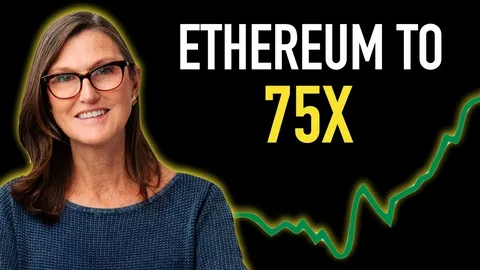Introduction
In recent years, Elon Musk and Cathie Wood have emerged as powerful voices in the technology and financial sectors, pushing boundaries with their bold investments and visionary ideas. Elon Musk, known for his pioneering work with companies like Tesla and SpaceX, has increasingly become vocal about cryptocurrency.
Meanwhile, Cathie Wood, founder of ARK Invest, has been an early advocate for crypto and disruptive technologies. Their recent alignment on pro-crypto policies presents an influential vision for the future of cryptocurrency in the United States. With a growing movement toward decentralization, Musk and Wood’s ideas emphasize fostering innovation while managing risk, aiming to support a robust, pro-crypto stance that encourages sustainable growth in the U.S. economy.
In this blog, we’ll explore Elon Musk’s and Cathie Wood’s perspectives on cryptocurrency, the potential impact of their support for crypto-friendly policies, and how their visions align with the broader U.S. economic outlook. We’ll also delve into how their joint pro-crypto advocacy could shape the regulatory and economic landscape of the United States.

1. Elon Musk and Cathie Wood: Leading Pro-Crypto Voices
Both Elon Musk and Cathie Wood have leveraged their influence to advocate for disruptive technologies, especially cryptocurrency. Musk, initially hesitant, has evolved into a strong supporter of digital assets, particularly Bitcoin and Dogecoin. His tweets and corporate actions have contributed to a dynamic market response, leading to the adoption of cryptocurrency in mainstream conversations.
On the other hand, Cathie Wood has been a proponent of digital assets since the early stages. ARK Invest’s portfolio reflects her belief in cryptocurrencies as transformative financial assets, investing heavily in companies associated with blockchain, crypto mining, and digital asset trading platforms.
Wood argues that Bitcoin, Ethereum, and other cryptocurrencies are the future of finance, likely to outperform traditional assets due to their decentralized and secure nature. Together, Musk and Wood bring a fresh narrative to the U.S. crypto landscape—one that encourages innovation and financial inclusion.
As of 2024, their continued support signals to both policymakers and investors that cryptocurrency isn’t just a passing trend. Instead, they suggest it’s a key element in the evolution of global finance, capable of providing financial autonomy and reducing the reliance on centralized systems. This advocacy aligns with their broader vision for technology-led economic growth, highlighting the untapped potential of blockchain technology across industries.
2. The Current State of U.S. Crypto Regulations
In the United States, cryptocurrency regulation has been a complex and evolving issue. While some U.S. states have embraced crypto-friendly policies, the federal government has largely maintained a cautious stance, focusing on consumer protection, anti-money laundering (AML), and counter-terrorist financing (CTF) measures. This has created a fragmented regulatory landscape that can be challenging for crypto businesses and investors to navigate.
Musk and Wood, both advocates for a pro-crypto stance, argue that excessive regulation could stifle innovation. They suggest that the U.S. needs a more balanced approach to regulation that fosters innovation while ensuring the integrity and security of financial systems.
For instance, Cathie Wood has openly expressed concerns about regulations that may limit the growth of blockchain technology and crypto investments. She argues for a lighter regulatory approach to allow the U.S. to stay competitive in the global digital asset market.
Elon Musk shares similar views, as he has highlighted the need for innovation-friendly policies that support the U.S. in becoming a leader in blockchain technology. His vocal support for crypto-friendly legislation and corporate actions like accepting Bitcoin for Tesla purchases—although temporarily halted due to environmental concerns—reflect his belief in cryptocurrency’s potential to revolutionize finance. Musk and Wood’s shared pro-crypto vision aligns with the need for the U.S. to foster a more flexible and supportive regulatory environment that accommodates rapid technological advancements.
3. Potential Benefits of Pro-Crypto Growth in the U.S.
Musk and Wood envision a future where cryptocurrency plays a pivotal role in the U.S. economy. Adopting a pro-crypto growth strategy could bring several benefits, including:
- Economic Growth and Job Creation: By supporting the crypto industry, the U.S. can stimulate economic growth through new jobs, from software engineering to regulatory compliance roles. This growth can expand further into blockchain applications in finance, healthcare, logistics, and more.
- Financial Inclusion: Cryptocurrencies offer individuals access to financial services, especially those in underserved or unbanked communities. This can lead to more inclusive economic participation, bridging gaps in financial accessibility and democratizing investment opportunities.
- Enhanced Global Competitiveness: The U.S. is at risk of losing its competitive edge if it fails to establish a more crypto-friendly environment. Countries like Switzerland, Singapore, and the UAE are already making strides with favorable crypto regulations, attracting companies and talent. Pro-crypto policies in the U.S. could help retain and attract global innovators, ensuring the nation remains a hub for technological advancement.
- Decentralization and Security: Cryptocurrencies and blockchain technology offer decentralized financial solutions, reducing dependency on central banks and providing greater security and transparency in transactions. This aligns with Musk and Wood’s advocacy for decentralization as a foundation for a resilient financial system.
By supporting a pro-crypto policy framework, Musk and Wood believe the U.S. can establish itself as a leader in blockchain innovation. This would not only enhance economic resilience but also provide a more equitable platform for wealth creation and distribution.
4. Challenges to Pro-Crypto Growth and Possible Solutions
Despite the potential advantages, achieving a pro-crypto landscape in the U.S. isn’t without challenges. Resistance from policymakers, environmental concerns, and security issues present obstacles to the widespread adoption of cryptocurrency. However, Musk and Wood are vocal about solutions that could pave the way for sustainable pro-crypto growth.
Policy Resistance
One of the primary challenges is resistance from policymakers who worry about the potential risks associated with cryptocurrency, including volatility, fraud, and cybercrime. Musk and Wood advocate for clearer, more consistent regulatory frameworks that mitigate these risks without hampering growth. They argue that U.S. lawmakers should collaborate with crypto industry leaders to develop policies that both protect consumers and support innovation.
Environmental Concerns
Elon Musk has addressed environmental concerns linked to cryptocurrency mining, particularly for energy-intensive coins like Bitcoin. By encouraging the development of greener mining practices and investing in renewable energy for mining operations, Musk has taken steps to align cryptocurrency with environmental sustainability. Wood also echoes this sentiment, emphasizing the need for crypto firms to prioritize environmentally friendly practices to gain wider acceptance.
Security Concerns
Another significant challenge is ensuring the security of blockchain networks. Musk and Wood suggest that investing in advanced security protocols and educating the public on secure crypto practices are key to addressing these challenges. Enhancing cybersecurity for blockchain technology can reduce the risk of fraud and cyberattacks, making crypto a more secure investment.
In addressing these issues, Musk and Wood’s pro-crypto vision offers a balanced approach to crypto adoption—one that emphasizes sustainability, security, and regulatory cooperation. Their stance encourages a collaborative effort between the public and private sectors to overcome challenges and realize the potential of crypto in the U.S.
Conclusion
Elon Musk and Cathie Wood have emerged as influential advocates for pro-crypto policies in the United States. Their shared vision for the future of cryptocurrency in the U.S. reflects a belief in the transformative power of blockchain technology and the benefits it can bring to the economy, from job creation to financial inclusion. By encouraging a supportive regulatory environment, they propose a path for the U.S. to remain competitive in the global crypto landscape.
As policymakers, industry leaders, and the public consider the path forward, Musk and Wood’s advocacy serves as a reminder of the need for balanced, innovation-friendly policies that support sustainable growth. Their pro-crypto vision is not just about financial gains—it’s about empowering individuals, promoting security, and building a future-ready economy.
What do you think about the future of cryptocurrency in the U.S.? Do you believe Elon Musk and Cathie Wood’s pro-crypto vision could drive sustainable growth in the industry? Share your thoughts in the comments below!



